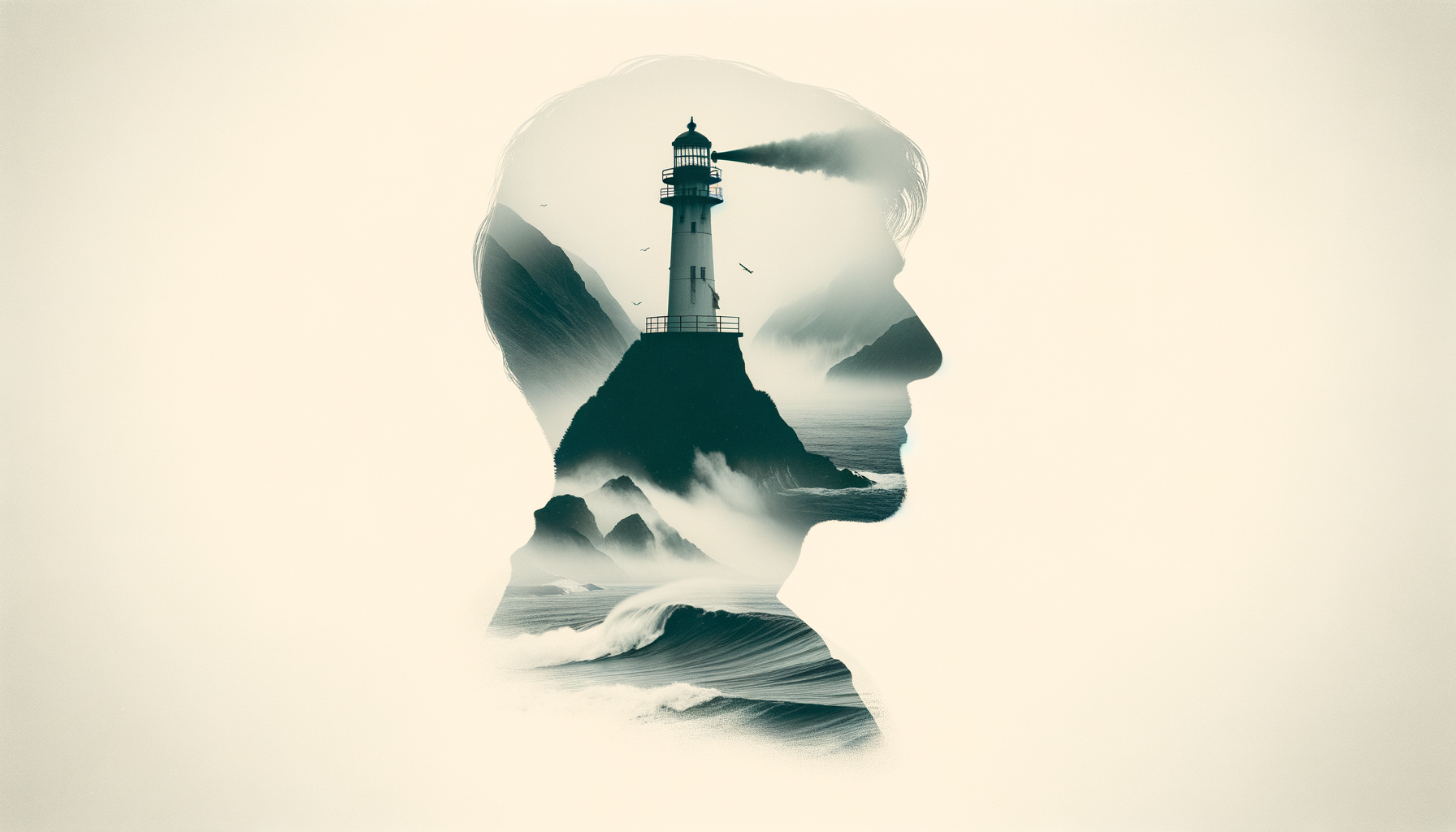The First Time I Felt Seen
The Hook: My Unexpected Moment of Recognition
The first time I truly felt seen, I was standing ankle-deep in sand, holding a lobster roll that was losing its structural integrity. My date, a watercolor artist named Jules, tilted their head like a seagull examining a clam, squinted at me, and said, “You’re someone who likes the sound of distant foghorns, aren’t you?”
Now, I know what you’re thinking. That’s… oddly specific. But in that moment, it felt less like a random observation and more like an unspoken truth I didn’t realize I’d been carrying around my whole life. It wasn’t just the foghorns (although she was right about that); it was the quiet acknowledgment that I belonged to a world shaped by gray skies and salt air. Someone had looked right past the polite “first-date Oliver” exterior and clued in to the person I actually was. And wow, did that feel like finding emotional dry land after years of paddling in circles.
But let’s rewind a little, because this moment didn’t come out of nowhere.
Section 1: Growing Up Invisible
When you’re raised on a small, misty island like Nantucket, it’s easy to assume invisibility is just the natural order of things. For most of my childhood, I felt more like a background extra in some coastal tourism brochure than the protagonist of my own life. Sure, I had moments of connection—sharing stories on the beach with friends, skipping smooth stones into the Atlantic—but my default mode was “listener,” not “being listened to.”
The thing about home, especially an insular one (both literally and metaphorically), is that people tend to project their own stories onto you. In Nantucket, I was the “innkeeper’s kid,” or “the quiet guy who knows a frankly unsettling amount about whaling.” I had been neatly slotted into a role like a character in a novel, one who played his part but rarely commanded the reader’s attention.
And honestly, I didn’t fight it. Why stick my head above water when it seemed smoother to float under the surface? Spoiler alert: I was wrong about how “smooth” that was.
Section 2: Losing Yourself in Someone Else
By the time I left for boarding school, and later college in Boston, I thought I was ready to craft a new narrative. I tried adopting new hobbies like fencing (because why not?) and feigned an enthusiasm for indie bands I couldn’t care less about. I also became particularly skilled at wearing the “dateable history dweeb” persona—think Colin Firth in a rom-com, but with less charm and no Jane Austen screen adaptations.
My early relationships reflected that projection strategy perfectly. I wasn’t an actual person to many of my dates; I was more like a blank slate for someone else’s dreams of “mysterious islander guy.” I wasn’t sure if they cared about who I was or if they just liked the idea of a windswept character handed to them, wrapped in nautical intrigue.
One of my longest relationships even built itself on this hollow scaffolding. We’d both leaned too heavily into who we thought the other person wanted us to be. She loved the fantasy: Oliver, the sensitive but rugged island boy who surely knew how to fold his feelings into beautifully complex origami. And I, in turn, played along. I liked being what someone else needed—until I realized I didn’t know what I needed.
Somewhere between shared Spotify playlists and kissing under streetlights, I had become invisible to myself.
Section 3: Recognizing What Makes You, You
So how do you go from being invisible—even in your own eyes—to showing up as your whole self? Honestly, it wasn’t any grand revelation, but a slow reckoning.
Getting older certainly helped. By the time I washed back up on Nantucket after a few Boston winters that aged me faster than any maritime ghost story, I was starting to peel away the layers of who people wanted me to be. Writing historical fiction grounded me in the stories that resonated deeply with my own life. I began recognizing patterns in the protagonists I wrote—or rather, the things I was unwillingly projecting onto them. There’s truth in fiction, and what I was writing screamed, “Can someone please notice me for more than my vaguely charming maritime expertise?”
But it wasn’t until that date with Jules, lobster roll in hand, that everything clicked. Her foghorn comment wasn’t just about my affinity for atmospheric nautical sounds. It was about how I engage with the world—my affinity for quiet things, distant echoes, and connections that don’t shout for attention but hum steadily in the background. Jules saw the undercurrent, not just the surface of the tide.
Suddenly, I realized that being “seen” isn’t about being loud or even about proving yourself. It’s about finding someone who looks at your quirks, the things you thought were niche or unremarkable, and says, “That’s you. And I like it.”
Section 4: What This Means for You
The good news is that you don’t have to uproot your life, study maritime history, or eat subpar lobster rolls to feel seen. It starts with awareness—of yourself, of others, and of the kind of recognition you’re actually craving.
Here’s what worked for me:
-
Know Your Quiet Parts. What’s the thing about you that you’re certain nobody notices? It could be your knack for reciting quotes from obscure documentaries, or how you always organize your books by mood instead of genre. Those parts of you? They’re the most genuine, and they’re worth embracing.
-
Engage Authentically. Stop pretending to like things just because they make you seem interesting. It’s exhausting—and honestly, there’s nothing hotter than someone confidently liking what they like without apology (even if it’s questionable reality TV).
-
Find Better Lobster Rolls (or People). Literally or metaphorically, don’t cling to what feels convenient just because it’s nearby. Whether it’s food or relationships, hold out for quality over quantity.
Ending With Encouragement: Celebrate the Quiet Echoes
The first time I felt seen wasn’t about fireworks or grand declarations. It was a quietly profound moment I hadn’t known I needed until it happened. And while I don’t believe in love at first sight anymore, I’m a firm believer in recognition at first nuance—the kind where you meet someone who gets the murmur of distant foghorns in your soul.
So the next time someone pauses and says something that feels like a page torn from your private autobiography? Pause, listen, and let yourself believe it. There’s magic in being known, even in the quietest of ways.




















